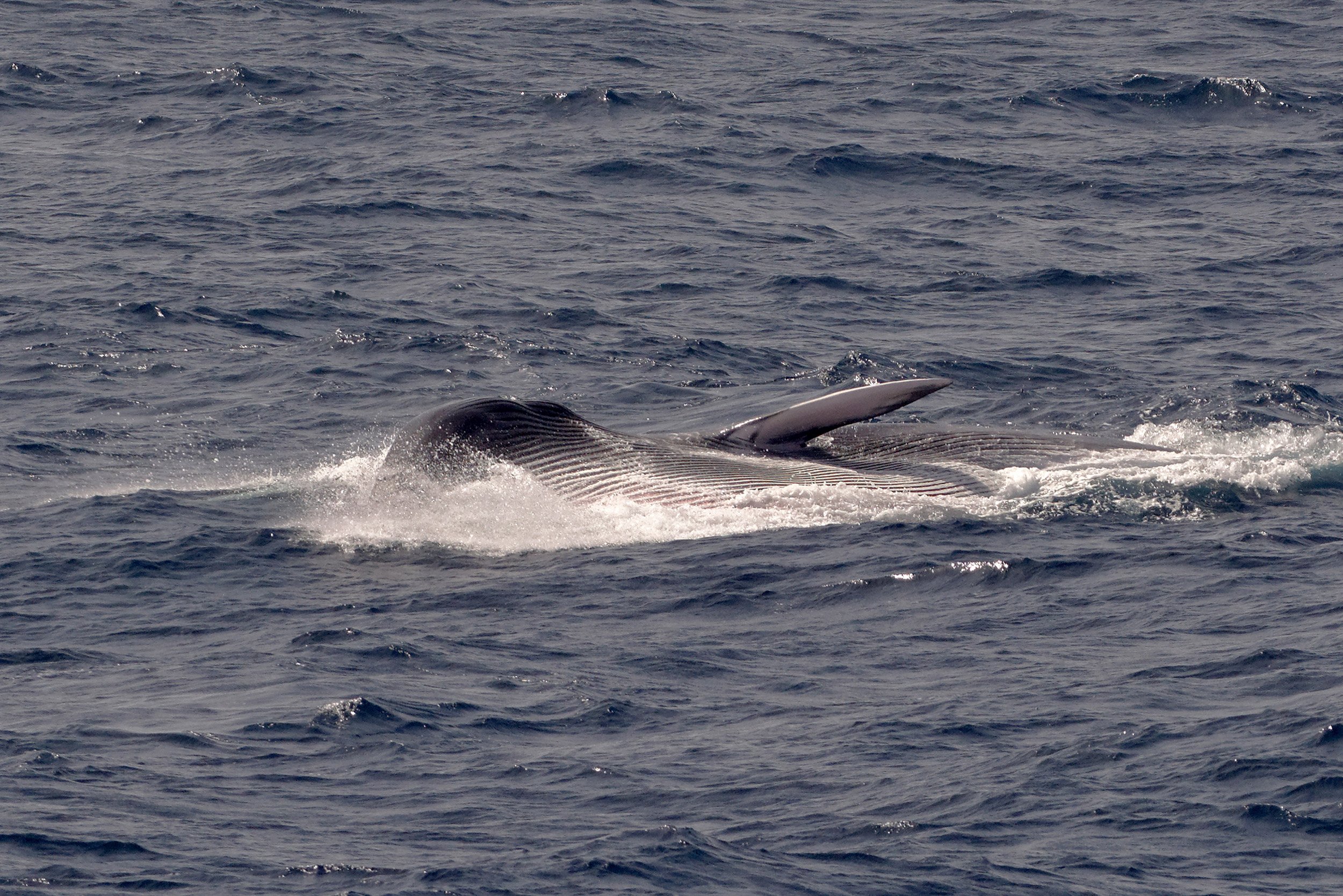
Scientists with the University of British Columbia have discovered a very unusual, and stretchy, part of the fin whale's anatomy.
"A colleague picks up this big white bungee thing. He pulled it and it recoiled. Then pulled it again. It just bounced back! It was amazing and we hadn't seen anything like it," explained Wayne Vogl, an expert with the university who was part of the discovery.
What the team of scientists had discovered was a nerve that allows fin whales to lunge feed. Also known as bulk feeding, this method of eating allows whales to dive and engulf a massive amount of water and prey at once. Then, the water is filtered out and only the food remains.
To accomplish this, the whales must open their mouths very, very wide. This bungee nerve is situated in the mouth and tongue, allowing whales to do so.

"You have to imagine a large school of krill or fish. The animal speeds up and opens its mouth. The mechanics of the way the mouth opens, it allows it to get much, much larger than you'd think, they incorporate a large quantity of water and inverts the tongue," Vogl explained.
The amount of water a whale engulfs can be more than the whale's mass, an extraordinary feat.
"The energy they get from the food is about 200 times the cost of energy to feed this way. They can incorporate huge biomasses of food. We think this lunge feeding is how the animals were able to get to this size and the stretchy nerves are fundamental to that."
The lunge and water filtering takes only 15 seconds. The next lunge is only about a minute after, meaning the whales are also able to feed quite quickly through this method.
The scientists studied more than a dozen whales over the course of two years. They took nerve samples from eight of these whales. Because it's difficult to study the whales up close, the scientists teamed up with fisherman in Iceland, one of the last places that allows for whale fishing.
"The sheer logistics of trying to get in to get a nerve or a blood vessel, it's not a minor thing to be able to do. When the whales were commercially harvested, we would hover and run and get things as they were taking the animal apart," Vogl said. "The heart alone was the size of a room. If the heart rolls over, it can kill you. You need heavy equipment to move this stuff around."
The nerves in question are particularly difficult to reach, as they are at the floor of the mouth. The research team came across them while investigating muscles and realized what they had found. When they stretched the nerve, it went from only 16 centimeters to more than 30, and they think it could have been stretched further.
"With human nerves, if you go beyond 4 to 5 percent stretch, you're in trouble. It disrupts the nerve and can result in permanent damage," Vogl explained. "But this fin whale nerve had over 100 percent stretch."
The scientists hope their discovery will shed more light on fin whales, and they still aim to learn more about this mysterious bungee cord.
Uncommon Knowledge
Newsweek is committed to challenging conventional wisdom and finding connections in the search for common ground.
Newsweek is committed to challenging conventional wisdom and finding connections in the search for common ground.
About the writer
Polly Mosendz is a breaking news reporter for Newsweek. She was previously a staff writer for The Wire and associate ... Read more
To read how Newsweek uses AI as a newsroom tool, Click here.








